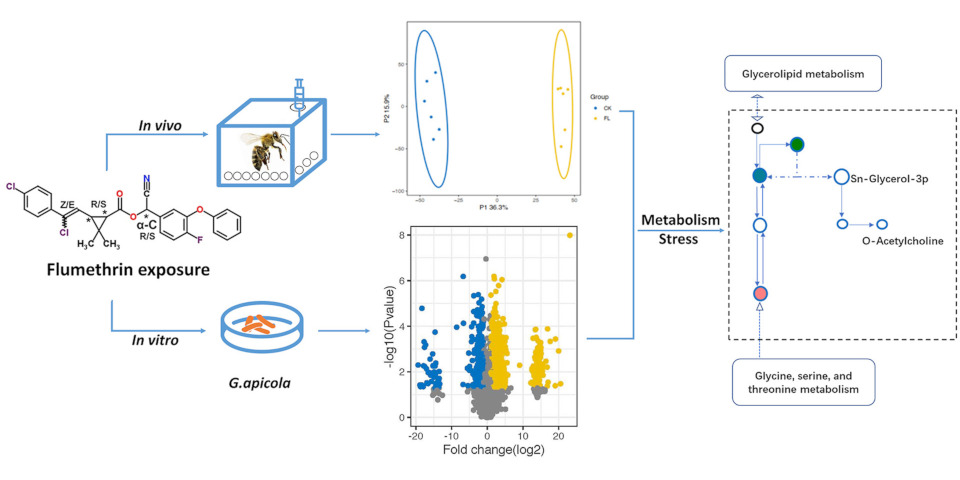Flumethrin is one of the few acaricides that permit the control of Varroa disease or varroosis in bee colonies. However, flumethrin accumulates in hive products. We previously discovered that sublethal doses of flumethrin induce significant physiological stress in honeybees (Apis mellifera L.), however its potential impacts on the honeybee gut microenvironment remains unknown. To fill this gap, honeybees were exposed to a field-relevant concentration of flumethrin (10 μg/L) for 14 d and its potential impacts on gut system were evaluated. The results indicated that flumethrin triggered immune responses in the gut but had limited effects on survival and gut microbial composition. However, survival stress drastically increased in bees exposed to antibiotics, suggesting that the gut microbiota is closely related to flumethrin-induced dysbiosis in the bee gut. Based on a non-targeted metabolomics approach, flumethrin at 10 μg/L considerably altered the composition of intestinal metabolites, and we discovered that this metabolic stress was closely linked with a reduction of gut core bacterial endosymbiont Gilliamella spp. through a combination of microbiological and metabolomics investigations. Finally, an in vitro study showed that while flumethrin does not directly inhibit the growth of Gilliamella apicola isolates, it does have a significant impact on the glycerophospholipid metabolism in bacteria cells, which was also observed in host bees. These findings indicated that even though flumethrin administered at environmental relevant concentrations does not significantly induce death in honeybees, it still alters the metabolism balance between honeybees and the gut symbiotic bacterium, G. apicola. The considerable negative impact of flumethrin on the honeybee gut microenvironment emphasizes the importance of properly monitoring acaricide to avoid potential environmental concerns, and further studies are needed to illustrate the mode of action of bee health-gut microbiota-exogenous pesticides.
2431 Members
127 Countries!
127 Countries!










